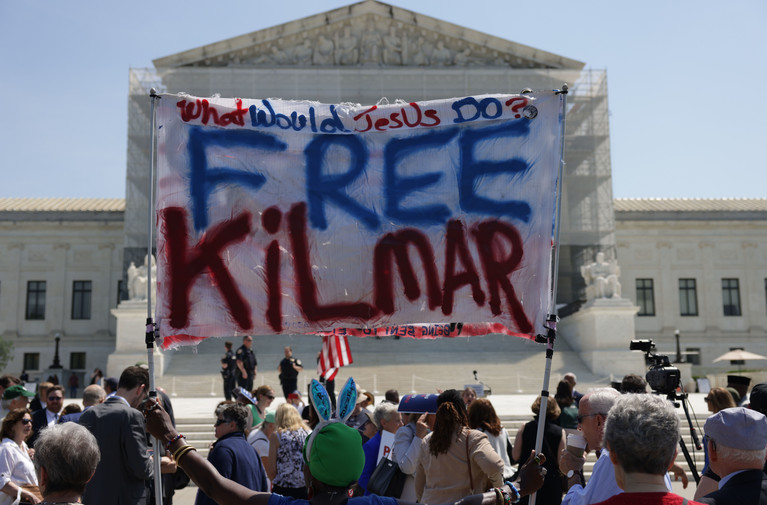Uganda Lawyers Slam ‘Arbitrary’ Trump-Era Deportation Deal Raising U.S. Citizen Concerns
A secretive U.S.-Uganda deportation agreement has sparked outrage among Ugandan lawyers, who call it an “arbitrary” violation of human rights that could even ensnare U.S. citizens. The deal, rooted in Trump-era immigration policies, highlights tensions over global migration and U.S. influence abroad.
Background of the Controversial Deal
In August 2025, Uganda’s Foreign Ministry confirmed a “temporary arrangement” with the U.S. to accept deportees who are not granted asylum but fear returning to their home countries. The agreement, which prefers African nationals and excludes those with criminal records or unaccompanied minors, aims to support the Trump administration’s aggressive immigration crackdown.
The deal follows similar agreements with Rwanda, South Sudan, and Eswatini, as the U.S. seeks third countries to accept migrants it cannot deport to their nations of origin. However, the lack of transparency and parliamentary oversight in Uganda has fueled criticism.
Why Ugandan Lawyers Are Alarmed
Ugandan legal experts, including prominent human rights lawyer Nicholas Opiyo, argue the deal undermines the rule of law. Opiyo likened it to “human trafficking,” questioning the legal status of deportees: “Are they refugees or prisoners?” He claims the agreement violates international law by prioritizing political expediency over human rights.
The absence of parliamentary approval further stokes concerns. Mathias Mpuuga, a former opposition leader, called the deal’s secrecy “stinking” and criticized its bypassing of Uganda’s legislative process. This opacity raises fears that the agreement could be abused, potentially allowing the deportation of individuals with ties to the U.S., including citizens, under vague criteria.
Could U.S. Citizens Be Affected?
While the deal primarily targets third-country nationals, the case of Kilmar Abrego Garcia, a Salvadoran national with long-term U.S. ties, has heightened fears. Garcia, who has an American wife and children, faced deportation to Uganda after rejecting a plea deal tied to human smuggling charges he denies. His case, halted temporarily by a federal judge, suggests the U.S. might leverage such deals to deport individuals with deep U.S. connections, raising questions about due process.
Although no explicit evidence confirms U.S. citizens are currently targeted, the deal’s lack of clear boundaries alarms critics. A misstep in immigration processing or political motivations could blur lines, especially given the Trump administration’s history of pushing legal limits.
Public and Expert Reactions
Ugandan opposition figures, like lawmaker Ibrahim Ssemujju, see the deal as President Yoweri Museveni’s bid to curry favor with the U.S. amid sanctions over Uganda’s human rights record, including its 2023 anti-homosexuality law. Analysts speculate Uganda may gain trade concessions, such as reduced tariffs on coffee exports, in exchange.
In the U.S., human rights advocates condemn the policy. “Sending people to countries with no ties, like Uganda, risks persecution,” said a Migration Policy Institute fellow, echoing concerns about Uganda’s history of jailing political dissidents. Posts on X reflect American unease, with users calling the policy “cruel” and “a betrayal of values.”
Impact on U.S. Readers
This deal affects U.S. readers on multiple fronts. Politically, it underscores the divisive immigration policies of the Trump administration, which could dominate 2026 midterm debates. Economically, it raises questions about U.S. leverage in global trade, as deals with poorer nations like Uganda may involve financial or tariff incentives, impacting American markets.
For lifestyle and social dynamics, the policy fuels distrust among immigrant communities in the U.S., particularly those with mixed legal statuses. The case of Garcia, a Maryland resident, hits close to home for families fearing separation. Technologically, it highlights the need for transparent immigration systems, as errors like Garcia’s earlier wrongful deportation to El Salvador expose flaws in enforcement.
Conclusion: A Deal Under Scrutiny
The U.S.-Uganda deportation agreement, shrouded in secrecy, has ignited fierce debate over its legality and morality. While it aims to address U.S. immigration challenges, its potential to affect individuals with U.S. ties, including citizens, demands closer scrutiny. As legal battles and public outcry grow, the deal’s future—and its broader implications—remains uncertain.
